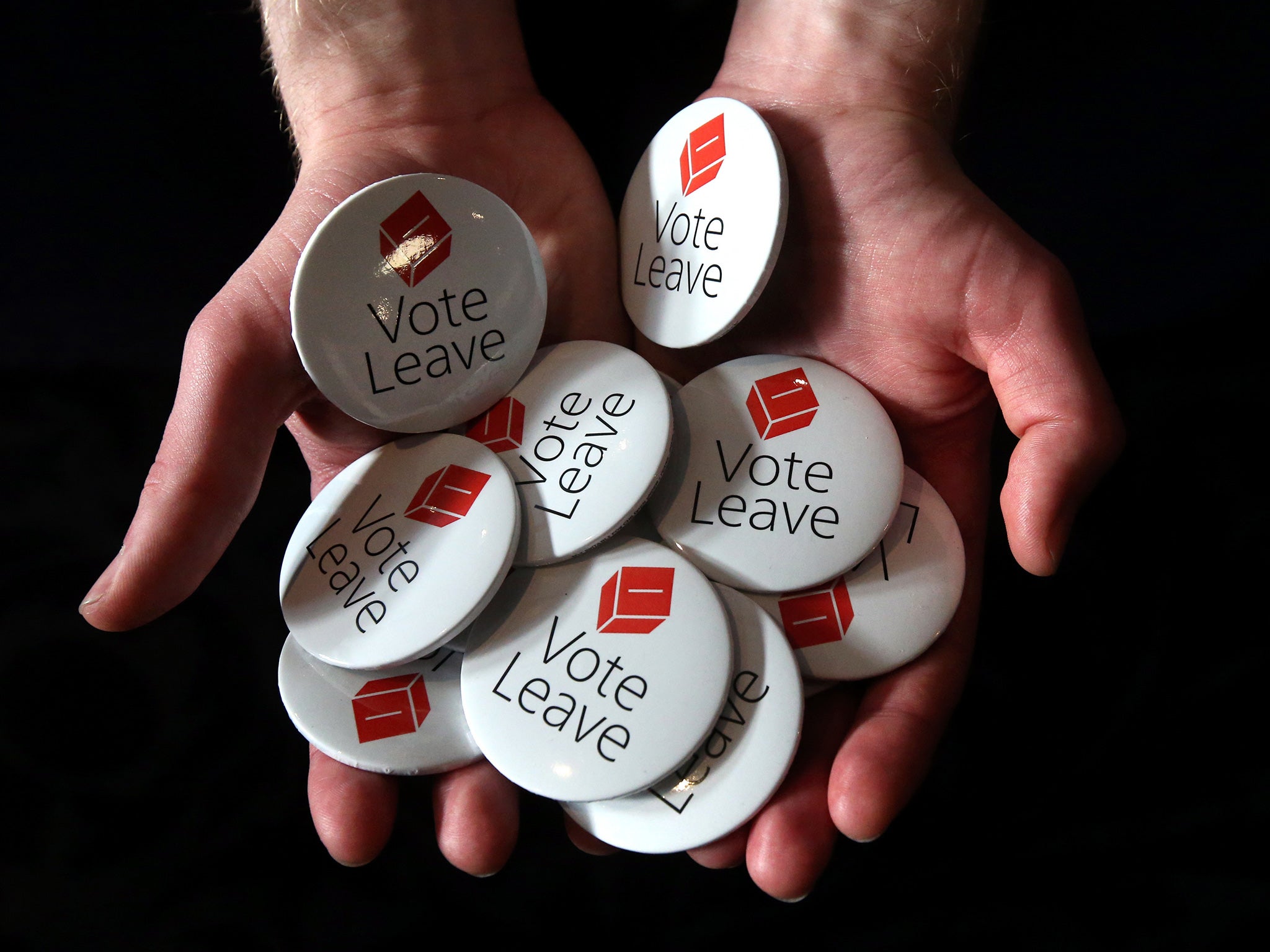EU referendum: We could be in for a political earthquake
Why vote to become £4,000 a year worse off? The problem, of course, is that the Treasury’s forecasts lack a certain amount of credibility

If the pollsters are still making the sort of errors that got the election result so woefully wrong a year ago, then Britain’s future in Europe looks bleak indeed. Even on the face of things the ‘Leave’ campaign is doing comparatively well, and is running ‘Remain’ dangerously close. If the number of older voters is again being underestimated – these, after all, are the ones who are the most Eurosceptic and most likely to turn out at the polling stations – then the country is on track for a political earthquake that will make last year’s general election upset feel like mere indigestion.
So will the Treasury report suggesting British families will be worse off by about £4,000 each if Britain gets out of the EU help or hinder the ‘Remain’ campaign in what is becoming a difficult contest?
On the fact of it, the argument should be a vote winner. Sovereignty is all very well, even if it can be defined in the neat, theoretical way that the anti-EU lobby suppose.
Yet voters are, as has been frequently observed, much more hard-headed individuals whose behaviour is driven by financial and economic arguments much more than political ones as such. The Scottish referendum result was a triumph of the rational economic facts over the romantic political call of freedom, and most elections, local or national, are determined by a simple calculation as to who is more likely to make a voter, their family and the wider country more prosperous.
Why vote to become £4,000 a year worse off? The problem, of course, is that the Treasury’s forecasts lack a certain amount of credibility. Economic forecasting is an imprecise art, and it is a wonder that the projections officials and independent economists make for growth, unemployment or inflation over a time horizon of a couple of years are as right as they are. But a projection stretching out to 2030 is stretching the voters’ commonness and credulity.
In fairness to the forecasters, of course they have to make some assumptions and look at real world evidence, which is plentiful, that EU membership has been and continues to be in the country’s best interests. We can see where nations such as Norway, Canada and Brazil stand; not terribly strongly in relation to the EU. The fact remains that our trade with Europe matters more to us than their trade with us matters to them.
If the continuing EU is to be faced with some sort of low cost, poverty-wage island attempting to steal their markets, of course they will not stand for that, and will demand change in our policies or they will take corrective measures to level up the playing field and ensure that we compete on a ‘fair’ basis. We would lose trade; we would lose jobs; we would suffer a loss in prosperity. It could easily amount to £4,000 per family. But that ‘fact’ cannot be proved.
It is a pity that the ‘Leave’ campaign won’t put up similar projections about life outside the EU. Of course they would suffer from the same sorts of biases and weaknesses as any other forecasting, but it would at least provide a basis for discussion. They prefer not to, and to rely instead on political rhetoric, of course, and some equally heroic ideas about how the rest of the world will treat us outside the EU power bloc.
These are rarely interrogated with the force they deserve. Will China and India want special trade deals with us? Will Mexico, Indonesia, Malaysia, Australia, Canada, the US, South Korea and Japan fill the jobs and exports gap left when the EU starts to re-apply tariff and other barriers to UK trade? How much will be selling to these new markets? How many Britons will be free to go and work in those economies? How will we use our modest political influence if things start to go wrong?
It is time Michael Gove, Boris Johnson and Nigel Farage admit they have no answers to those questions – not even projected ones.

Join our commenting forum
Join thought-provoking conversations, follow other Independent readers and see their replies